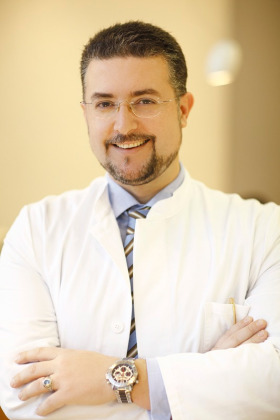Georgios Hristopoulos MD: Plastic & Aesthetic Surgery In Germany
/Cosmetic medical technologies offered in Germany are attracting medical tourists.
Name: Dr. Georgios Hristopoulos
Clinic: Pantheon Aesthetic Center
Location: Cologne, Germany
Website: pantheon-aesthetic-center.de, beethoven-klinik-koeln.de
That's interesting: Dr. Georgios Hristopoulos is employed as Head of the Department of Aesthetic Plastic Surgery of the Beethoven Klinik in Cologne, Germany and at the same time runs his private office, named Pantheon Aesthetic Center. His surgical focus is the Breast Surgery and specifically the complete sub muscular Breast Augmentation (inner Bra) as well as the Dermolipectomies on trunk and extremities.
He speaks German, Greek, English and Spanish.
How does your surgical practice function? How is it organized?
I am the Chief of the Department of Aesthetic Plastic Surgery of a small private clinic in Cologne / Germany called Beethoven-Klinik. The clinic is one of the oldest and biggest private Clinics of Plastic and Aesthetic Surgery with government concession in the North Rhine Region and maybe in whole Germany. We have an interdisciplinary occupation with Orthopaedists, Trauma-Surgeons and a Dermatologist.
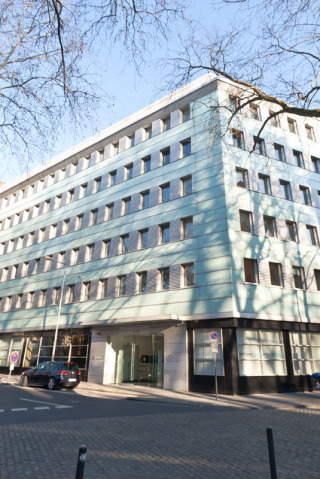 A special feature of my Department is that my private practice office, named Pantheon Aesthetic Center is a part of the clinic, so I can combine the conservative treatments and medical consultations with the aesthetic-plastic surgeries, without changing location! My Department offers the whole spectrum of the aesthetic-plastic surgery and conservative treatments. Our special topic and surgical focus is breast surgery, specifically the completely sub muscular breast enlargement (inner Bra), breast reduction, breast lift, Silicone implant exchange as well as rhinoplasty, abdominoplasty and of course liposuction. My typical patients are between 25-35 years old. About 90% of them are women and 10% men. There is a worldwide movement towards non surgical technologies, which I believe is a rather normal development since the average age of first time patients looking for a cosmetic treatment or operation is becoming smaller every year.
A special feature of my Department is that my private practice office, named Pantheon Aesthetic Center is a part of the clinic, so I can combine the conservative treatments and medical consultations with the aesthetic-plastic surgeries, without changing location! My Department offers the whole spectrum of the aesthetic-plastic surgery and conservative treatments. Our special topic and surgical focus is breast surgery, specifically the completely sub muscular breast enlargement (inner Bra), breast reduction, breast lift, Silicone implant exchange as well as rhinoplasty, abdominoplasty and of course liposuction. My typical patients are between 25-35 years old. About 90% of them are women and 10% men. There is a worldwide movement towards non surgical technologies, which I believe is a rather normal development since the average age of first time patients looking for a cosmetic treatment or operation is becoming smaller every year.
Are you seeing an increase in medical tourism? Do you see more medical tourist patients in one of your locations than the others?
In the era of Internet and cheap air flights is now easier than ever for a patient to choose and visit his favourite plastic surgeon regardless if the private practice or the clinic is far away or even in another country! Because of Germany’s geographical position in the middle of Europe as well as the proximity to several countries such as Holland, Belgium, France, Luxembourg and Poland. There is indeed a big population of patients who are medical tourists. In my practice as well as my clinic I see a lot of patients from the near region up to 200 km away from Cologne, such as Duesseldorf, Bonn, Aachen, who travel to our clinic for a consultation or surgery.
You had several internships/fellowships in European and international countries. What are your opinions about physician training?
Actually, the education for plastic and aesthetic surgery is very similar all over the world. The practice of the trainees depends of course a great deal on the focus and topics of the training clinic. Therefore, it is almost impossible for a young plastic surgeon to be trained in the entire spectrum of plastic surgery in a single clinic. That means he / she has to be ready to change different clinics and if necessary also different regions or even countries in order to be able to acquire a wider education and expertise.
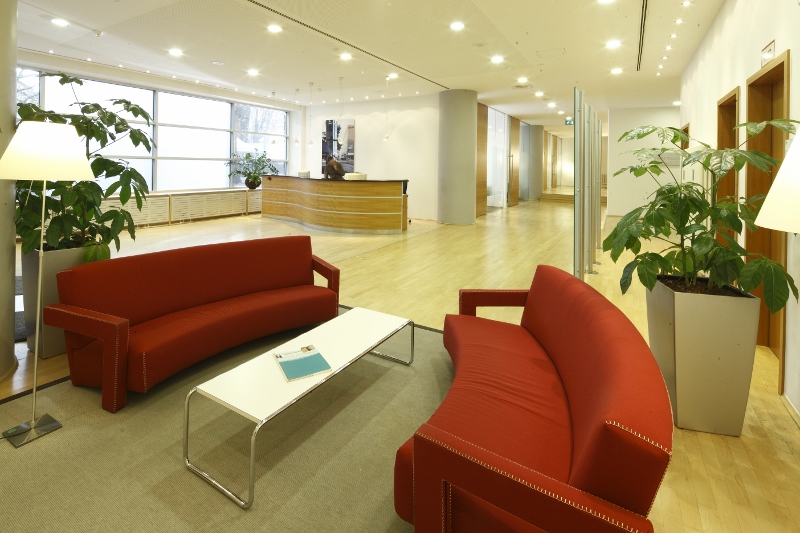
Do you see any differences in how cosmetic societies function and the benefits that they provide to their members?
The way that national, European or international societies works and functions, are almost the same. Of course, the bigger and more diverse a society is, the higher and more reputable are the education and quality standards as well as the benefits for their members. Some of the most known Societies are the ISAPS (International Society of Aesthetic Plastic Surgery), the IPRAS (International Confederation for Plastic, Reconstructive and Aesthetic Surgery) and the ASPS (American Society of Plastic Surgeons).
There are a lot of physicians who are moving into cosmetic medicine utilizing technology solutions rather than surgery. Do you think medical technologies will replace surgery in Germany soon?
Germany is very reputable worldwide for the development and application of technological solutions for cosmetic medicine. Generally, I believe that technological solutions belong to a modern approach of cosmetic medicine and have their special advantages but they are unable to completely replace the human essence. Aesthetic approach as well as surgical skills is human property and craft that it is impossible to be completely replaced by machines or technology.
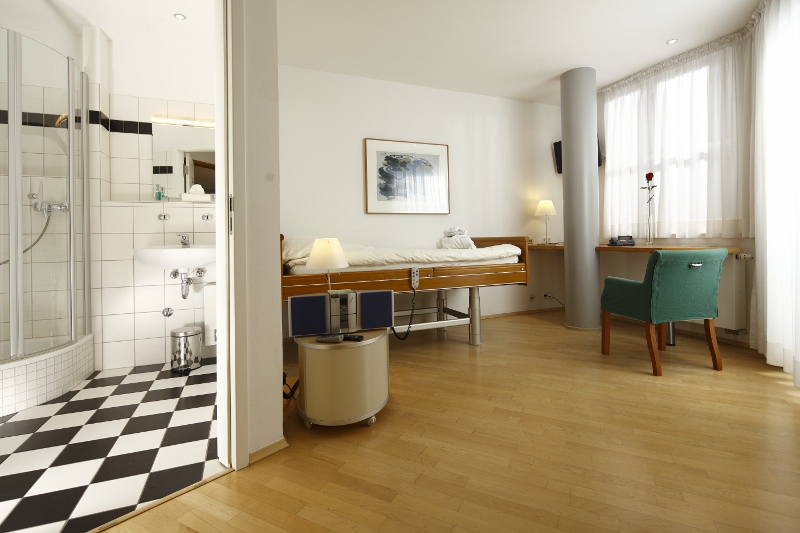
You had training in medical tattooing. Can you tell us a bit on how this works?
Medical tattooing is a simple way to reconstruct the nipple-areoral complex after a mastectomy or loss. The principle is to put artificial pigments to the surface of the skin and to imitate the shape and colour of the healthy one. This is the most difficult part of the procedure. The pigments are medically approved iron compounds, the colour mixture has to be done like a painter shortly before application. The equipment is similar to common tattoo equipment. Another good application for medical tattooing is the depigmentation of scars.
What is the best advice you have ever received as a physician?
The moving force of my everyday life as a plastic surgeon comes from my mother which is "be yourself" and "have fun at work".
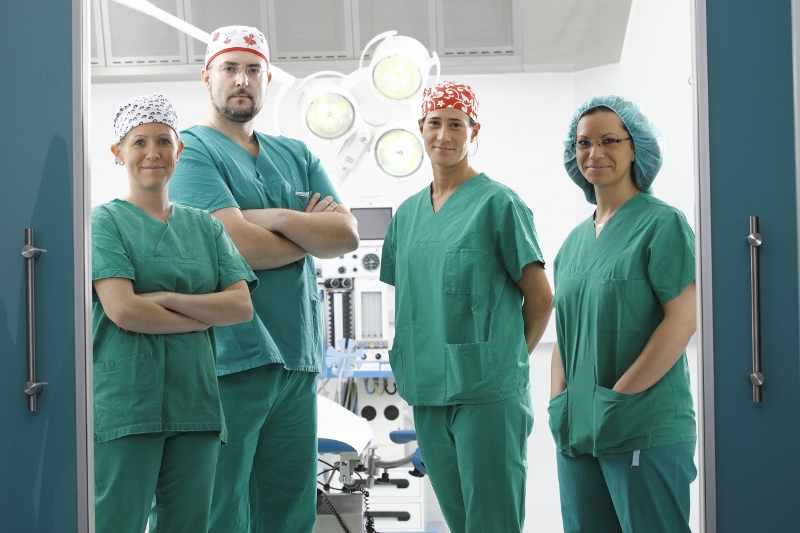
About: Dr. Georgios Hristopoulos was born in Athens / Greece in 1973. He studied Medicine at the Humboldt-University of Berlin and trained in many different Hospitals and Clinics in Berlin, where he acquired Specialty in Plastic and Aesthetic Surgery. Moreover, he worked for several years as senior physician in the Department of Plastic, Breast and Aesthetic Surgery in two private Clinics in Berlin, before he returned back to Greece in 2010 to work as senior Physician in various private clinics in Athens and Thessaloniki. Throughout the years he has developed many internships/fellowships in European and international countries, such as Greece, Cyprus, Israel and Dubai (UAE).
Germany is financially and technologically the strongest country-member of the European Community. Like the rest of the world, there is a big market in aesthetic-plastic surgery treatments in Germany with a constant growth trend. The most common nonsurgical cosmetic procedures are the wrinkles treatments with Botox or Hyaluronic acid. Common surgical treatments include liposuction, Rhinoplasty and breast augmentation.
This interview is part of a series of interviews of physicians running medical spas, laser clinics and cosmetic surgery centers. If you'd like to be interviewed, just contact us.

